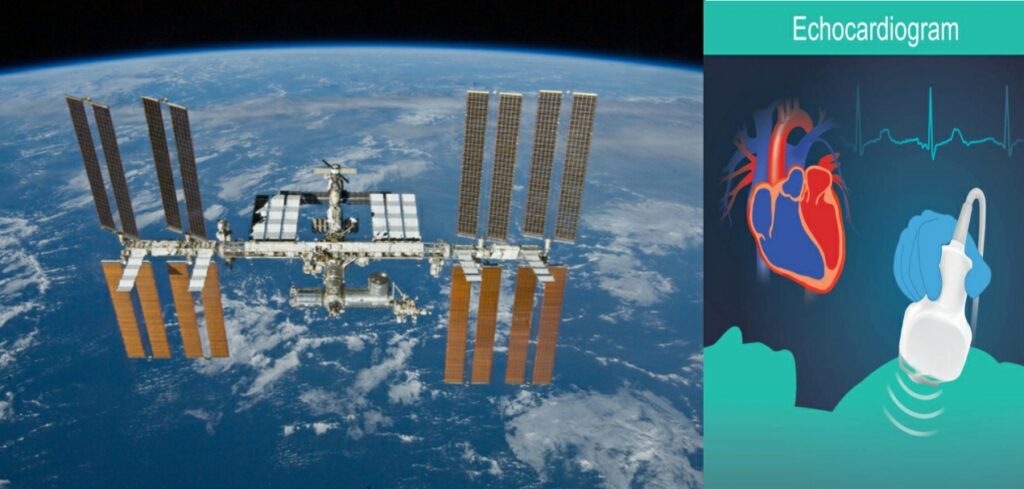
Research has shown that outer space has a negative impact on the cardiovascular system of astronauts.
Now, researchers in Israel plan to assess these specific effects in a new study that will be conducted on an upcoming mission and incorporate handheld ultrasound and artificial intelligence. Overseeing it will be the Israeli Aerospace Medicine Institute (IAMI), the Israel Space Agency and the Ramon Foundation.
“Providing easy access to cardiac diagnostic information, for ongoing cardiac monitoring or for emergency medical interventions is of critical importance,” said Dr. Eran Schenker, chief innovation medical officer of IAMI, in a statement.
The study will be conducted as part of the upcoming “Rakia” space mission, which will be the first to send tourists to the international space station. It will include handheld ultrasound devices to conduct point-of-care sonography and the UltraSight AI software platform, which helps users with no sonography training perform such procedures. The software provides real-time guidance and assessment and is expected to help provide critical medical information to crew members during flights with no trained sonographer on board or in the mission control center.
Colonel Eytan Stibbe, a former fighter pilot and one of the founders of the Ramon Foundation, will utilize the technologies to acquire ultrasound images several times throughout the space mission. The researchers will assess them to monitor changes in heart anatomy during long periods in a microgravity environment.
The study is not the only one that will focus on the effects space has on the human body. Others include the impact it has on astronauts’ urinary tract, stress and sleep patterns, and immune dysfunction.
The cardiac imaging study is expected to provide evidence that supports the introduction of cardiac ultrasound not just in space but also in rural and underserved communities. “Our goal in the upcoming space study is to prove that with UltraSight’s real-time guidance, any astronaut can acquire quality cardiac images, simply and independently of ground mission control or trained medical professionals. Our novel technology carries the potential of increasing patient access to cardiac imaging and better care,” said Davidi Vortman, CEO of UltraSight.
The mission is planned for early 2022.